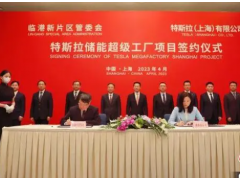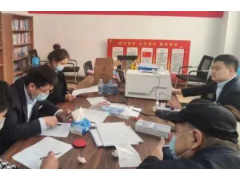Who is the Communist Party of China (CPC)? What is the CPC's role in the new era?
The CPC has grown into one of the largest ruling parties in the world in the process of leading the Chinese people in seeking liberation and happiness, making China as strong and prosperous as it is today.
As the CPC ushers the nation into a new era of development, the last decade has witnessed great achievements in national strength and prosperity, with people's confidence and recognition of this path rising to unprecedentedly high levels.
With more than 96 million members, the CPC concluded its 20th National Congress in October, which has realized the goals of unifying thinking, fortifying confidence, charting the course for a new era, and boosting morale. The Global Times is publishing a series of stories to help the world understand the CPC in this new era, through stories from CPC members working on the frontlines of various fields, as well as through observations made by respected scholars.
This installment tells the story of a grass-roots agronomist and a delegate to the 20th CPC National Congress from Tongliao, North China's Inner Mongolia Autonomous Region, who is among the hundreds of thousands of people who have witnessed and promoted the steady progress of China's food security situation in the last decade.
For farmers in Inner Mongolia Autonomous Region's Tongliao, there were two pieces of good news in recent days: The corn harvest in the fields is abundant, and their female "grain king" who went to Beijing to represent their agrarian region at the CPC National Congress has returned.
When Mei Yuanxue returned to her hometown, the Horqin Left Wing Middle Banner in Tongliao, the applauses that echoed in the Great Hall of the People during the Congress were still fresh in her ears and on her mind, while the cheers from local farmers upon her return renewed her enthusiasm and energy.
"I can't wait to tell my folks the good news," Mei, director of the agricultural technology promotion center of the Horqin Left Wing Middle Banner's Agriculture and Animal Husbandry Bureau, told the Global Times.
"The report to the 20th CPC National Congress once again has made food security and rural revitalization as an important priority. This is not only a new signal for the country to further incentivize farmers, but also strong growth encouragement for agricultural science and technology workers," she said.
Silently rooted in the farmland for 33 years while carrying out scientific research and agricultural technology promotion, Mei had set a high yield record of 1126.6 kilograms of corn per mu (0.06 hectares), and helped the Horqin Left Wing Middle Banner achieve good harvests for 19 consecutive years. In 2021, China's national corn yield was 419 kilograms per mu.
"With the support of the CPC's favorable policies, farmers in my hometown have increased their income steadily from helplessness in the face of barren lands and fierce wind-sand disasters to guaranteed harvests," Mei said, stressing that at present, the Chinese people firmly grasp the initiative of maintaining the foundations for food security on all fronts. In the future, China will have the capacity and confidence to further promote rural revitalization through agriculture.
Rooted at grass-roots level
The 57-year-old woman of Manchurian ethnicity actually isn't a farmer herself, but is now regarded as her region's "savior" by local people, many of whom farmers.
What's made Mei, a feminine intellectual woman, willing to work in the fields for over 30 years? And what makes this woman, who is literally not afraid to get her hands dirty every day, create a miracle of promoting and consolidating 5.9 million mu worth of high-quality farmland, achieving an annual increase of over 50 million kilograms of grain production and saving over 600 million cubic meters of water every year?
Mei's hometown, the Horqin Left Wing Middle Banner, has 5.41 million mu of arable land, but the saline soil accounts for more than one-third of the entire area.
From childhood, Mei was used to seeing a few sparse crops growing on the desolate patches of saline land accompanied by the anxiety and confusion of local farmers, which was a long-standing pain in her heart.
After graduating from university in 1989, Mei gave up a job in the big city and returned to her hometown to become a grass-roots agricultural science and technology promotion agent.
In the eyes of the local farmers, Mei is always "dusty"— she never wears stylish leather shoes and, always heads straight to the farmland when she arrives in any village. In order to find and resolve the bottleneck issues that limit agricultural production, she often works through the night without taking any breaks.
Tongliao is located in the world's golden corn belt, but at the same time, the city suffers from a serious shortage of water. In the past, the pollution caused by the widely used drip irrigation covered with plastic film made Mei anxious.
In order to solve the problems of water scarcity and conservation simultaneously, in 2012, Mei began to experiment with shallowly burying recyclable drip irrigation belts in fields and achieved a technical breakthrough. To the present day, Tongliao has transformed 5.9 million mu into high-quality farmland with the shallowly buried drip irrigation system technique she has engineered, which has brought huge ecological and economic benefits.
During the past three decades, Mei has solved many agricultural challenges faced by local farmers: When a large-scale insect infestation occurred, she set up a team to detect and report the infestation. At one time, local farmers would widely use a single nitrogen fertilizer which would result in low yields. She compiled a scientific guide to fertilization to better advise villagers.
Currently, the focus of Mei's research is the arability of saline land. In 2021, Mei led a scientific research team to implement a set of replicable and sustainable saline-alkali land improvement technology models, prompting the transformation of more than 4 million mu of salinized and low-yield farmland in Tongliao, and doubling the output of said fields that were once a source of disappointment for farmers.
For more than 30 years, Mei has spent an average of nearly 200 days a year at the grass-roots level. She visited all 516 villages across the banner, promoting more than a dozen advanced agricultural technologies.
Over the last decades, Mei has turned down several more financially lucrative opportunities, insisting on working on the front line.
"Finding technological defects that can be improved in the process of agricultural production, continuously gaining the expertise to surmount such problems, and passing on such expertise to farmers in need is what gives me a sense of accomplishment," Mei said.
Full of trust, encouragement
Mei's sense of accomplishment also comes from her judgment of the current stable and progressive food security situation in China. At the grass-roots level, she has personally felt the efforts and determination of the CPC in ensuring food security.
Taking Tongliao as an example, Mei said that the local agricultural and animal husbandry authorities have actively provided quality services to farmers, including selecting batches of self-developed, high-quality and high-yield seeds, promoting advanced production technologies such as unmanned aerial vehicles for the prevention and control of insect attacks, and precision seeding by using the BeiDou Navigation Satellite System.
"In the past, farming in Tongliao was an inefficient activity, but today, women are no longer seen sowing in the spring, and men are no longer required to bear heavy manual labor during the harvest season. We have mechanized the whole process, from clearing the land, to waiting for mature field management, to the final harvest," Mei said, beaming with pride.
At present, due to the supply shortage and the Russia-Ukraine crisis, among other overlapping factors, the serious situation of international food security has aroused widespread concern. Despite such global uncertainty, Mei firmly believes that no matter how much the international situation changes, China still has the ability to feed its 1.4 billion people.
"The current emphasis on national food security is not a hasty response to the crisis; our country has always taken precautions. One decade ago or even earlier, we had gradually begun improving the food production and supply system," Mei noted.
Chinese President Xi Jinping, also general secretary of the Communist Party of China Central Committee and chairman of the Central Military Commission, has highlighted the importance of seeds and farmland on multiple occasions.
During an April visit to a seed laboratory in Sanya, South China's Hainan Province, Xi said seed resources must be "firmly held in our own hands" to ensure food security. He stressed efforts to achieve self-reliance in seed technology and ensure that China's seed resources are self-supporting and under better control.
Regarding farmland protection, Xi once emphasized that farmland is the lifeline of grain production and the foundation for the sustainable development of the Chinese nation.
"While making great efforts to ensure the security of seeds, China is strictly safeguarding the red line of 1.8 billion mu of arable land. With the popularization of modern agricultural production, our food production has been continually reaching new highs," Mei said.
According to China's National Development and Reform Commission, in 2012 China's grain output surpassed the 1.2 trillion jin mark (600 billion kilograms) for the first time. It has also exceeded 650 billion kilograms for seven consecutive years since 2015. In 2021, the grain output hit a record high of 682.85 billion kilograms, increasing to 70.2 billion kilograms as compared to 2012. The per capita grain supply reached 483.5 kilograms, above the international food security threshold of 400 kilograms.
Expecting the future
Mei, who joined the CPC in December 2000, has been a delegate to the Party's National Congress for three consecutive sessions. Having once again witnessed the grand meeting, Mei felt proud to see the excellent achievements Tongliao has made in the field of agriculture, and is more grateful for the dedication of grass-roots Party officials and farmers behind the success.
Mei told the Global Times that she was initially inspired to join the CPC by the exemplary role played by its members.
"Whenever we go to the countryside to conduct research or promote agricultural techniques, the local farmers always respond more enthusiastically to the Party members. And it is also the Party members who are the first to be called and mobilized for some difficult tasks, which made me hope to join this advanced team to play a bigger role," she said.
After becoming a Party member, Mei truly felt the great synergy generated by comrades working side by side toward the same goal of transforming agricultural science and technology findings into real productive harvests.
"Many agronomists went all over the country to open up experimental fields for technological innovation. In my hometown, grass-roots Party officials went door-to-door and through WeChat groupsto hold lectures to promote new agricultural knowledge, the result of which was confidence in yearly harvests as a guaranteed 'bet' on our research," Mei said.
At present, the corn harvest in the field is abundant, but Mei also felt the heavy responsibility. In her next step, she will grasp the golden period of China's grain development and based on the current preferential policies, strive to further increase local crop output in the near future.





